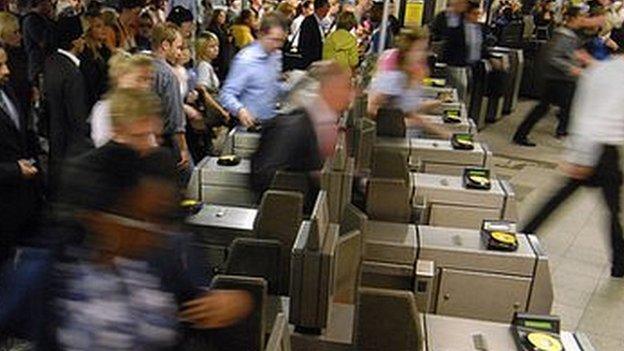Night Tube begins in London, bringing 'huge boost' to capital
- Published
The BBC looks back at the Night Tube's first night
The Night Tube has been launched in the London Underground - almost three years since the plan was first announced.
Trains now run on the Victoria and Central lines on Fridays and Saturdays between 00:30 BST and 05:30.
Transport for London (TfL) said 50,000 people used the Night Tube on Friday. Passenger numbers are expected to reach 200,000 once all five lines are open.
The service had been intended to launch in September 2015 but was delayed due to strikes over pay.
View from the carriage: On board London's Night Tube
TfL said 6,500 people were recording entering Oxford Circus overnight, while 4,250 passengers exited Stratford station.
The city's mayor, Sadiq Khan, said it was "wonderful" thousands of Londoners were able to benefit from the service, claiming the Night Tube would provide a "huge boost" to the capital.
Mr Khan was among those to board the first Victoria line service in the early hours of Saturday.
He chatted to passengers on the train, which departed from Brixton, south London, at 00.34 BST.
Speaking at the launch of the service, he said: "You can feel the buzz, you can feel the vibe.
"People are really excited.
"What's important is we got the detail and the planning right.
"I'm really pleased that 100 days or so after becoming the mayor we've got that right."
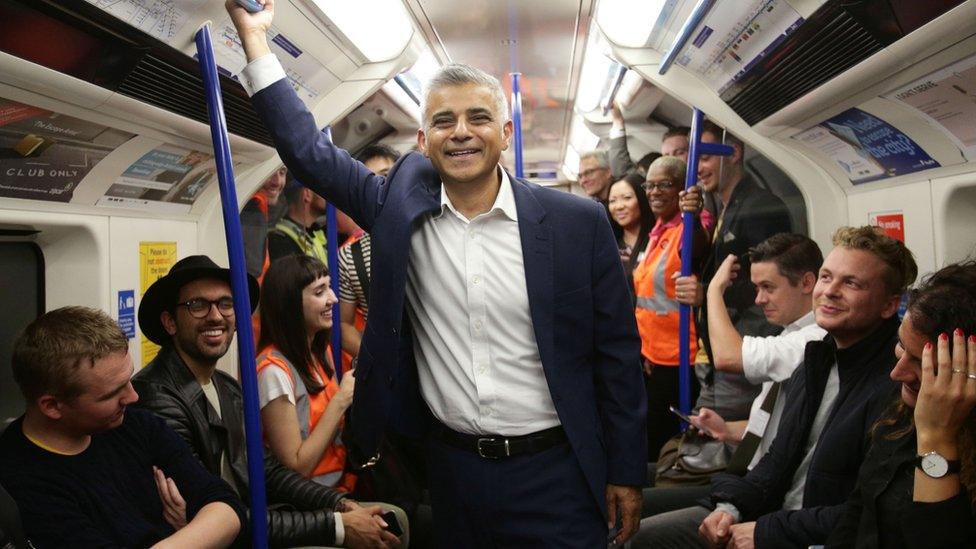
Trains are running every 10 minutes on the full Victoria line and on the Central line between White City and Leytonstone.
They now run approximately every 20 minutes between Ealing Broadway and White City and between Leytonstone and Loughton/Hainault.
The 24-hour service will run on Fridays and Saturdays
About 100 British Transport Police officers patrolled the network on the launch of the service.
But Superintendent Chris Horton insisted there was "no reason" why passengers would not be as safe as during the day.
He said the force would focus on "being visible" and ensuring it was "able to intervene in places that are likely to see significant issues".
Many other global cities already run a 24-hour service
Plans for a Night Tube service were announced in November 2013, with Transport for London saying there was a "huge demand" due to passenger numbers on weekends soaring by 70% since 2000.
The service was intended to begin in September 2015, but strikes over pay delayed the start by nearly another year.
Unions staged a series of strikes during July and August last year before an agreement was reached in March 2016.
Before leaving office, former mayor Boris Johnson, who had clashed with unions on ticket office closures and Night Tube plans, said he hoped services would get under way by July.
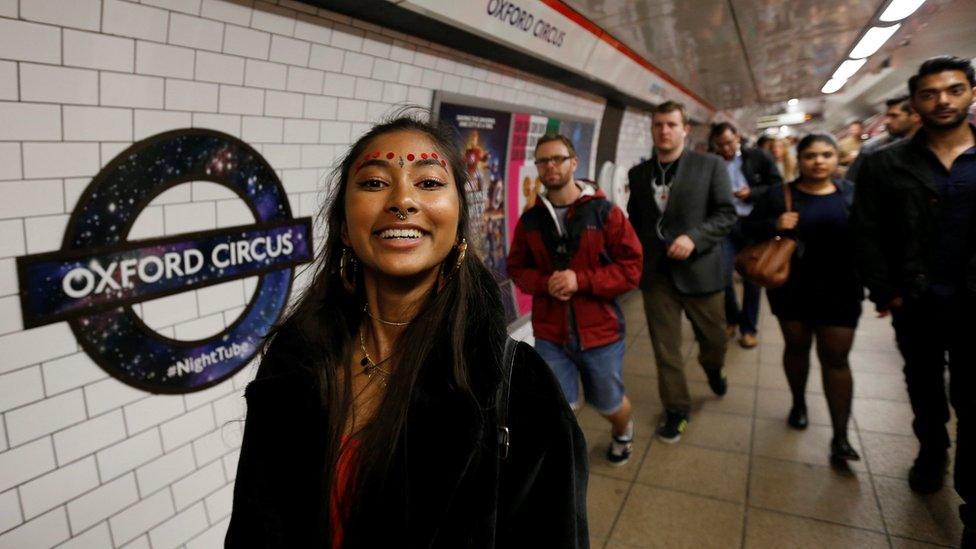

Night Tube timeline
November 2013: Night services are first announced by then-Mayor of London Boris Johnson
September 2014: It is announced that the first Night Tube services will begin in September 2015 - in time for the Rugby World Cup in England
September 2014: The Rail, Maritime and Transport (RMT) union warns that the plans have "not been properly thought through"
April and July 2015: Members of four unions take strike action over proposals
September 2015: London Underground delays the start of the Night Tube until an agreement is reached
February 2016: RMT recommends acceptance of a pay and conditions deal
May 2016: New Mayor of London Sadiq Khan confirms that 24-hour trains will begin in August
August 2016: First Night Tube service begins

The night service will be rolled out on the Jubilee, Piccadilly and Northern lines in the autumn.
There are also plans to expand the service to parts of the Metropolitan, Circle, District, and Hammersmith & City lines after modernisation and on parts of the London Overground in 2017 and the Docklands Light Railway by 2021.
Passengers will pay off-peak fares and day travelcards will be valid but will expire at 04:30.
About 100 police officers will be on patrol to allay any safety fears and eight new bus routes will now run 24-hour services to go hand-in-hand with the Tube night services.
The services are expected to add £6.4bn to the London economy by 2030, creating 500,000 jobs, TfL said.
- Published19 August 2016
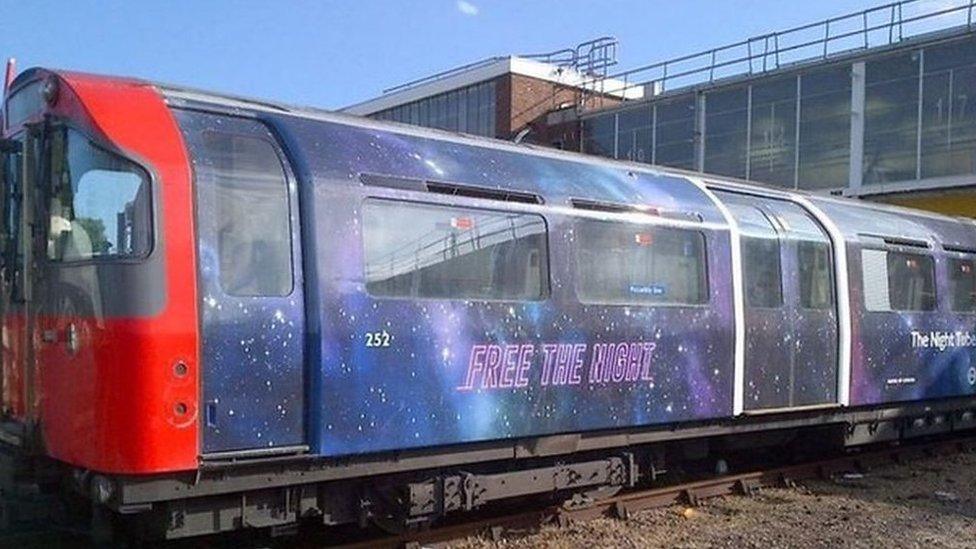
- Published17 August 2016
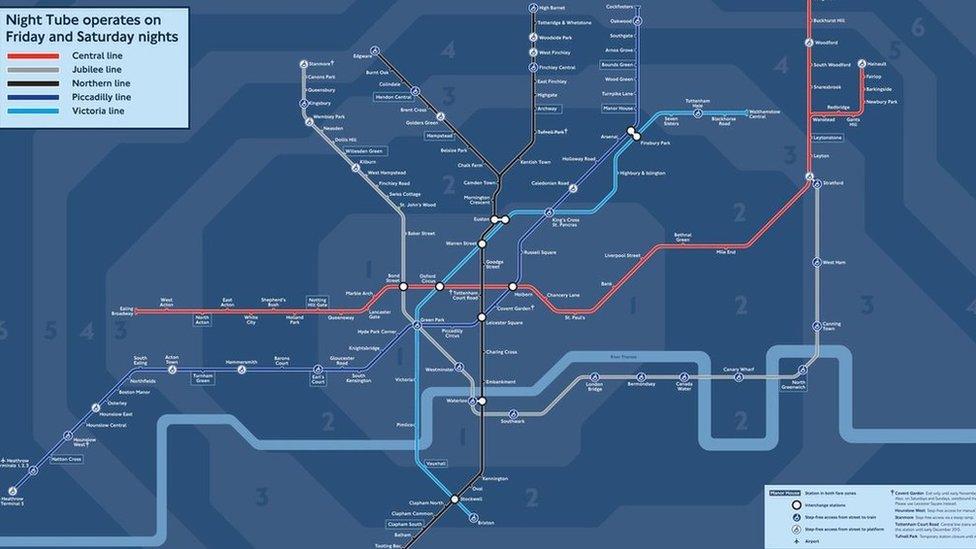
- Published16 August 2016
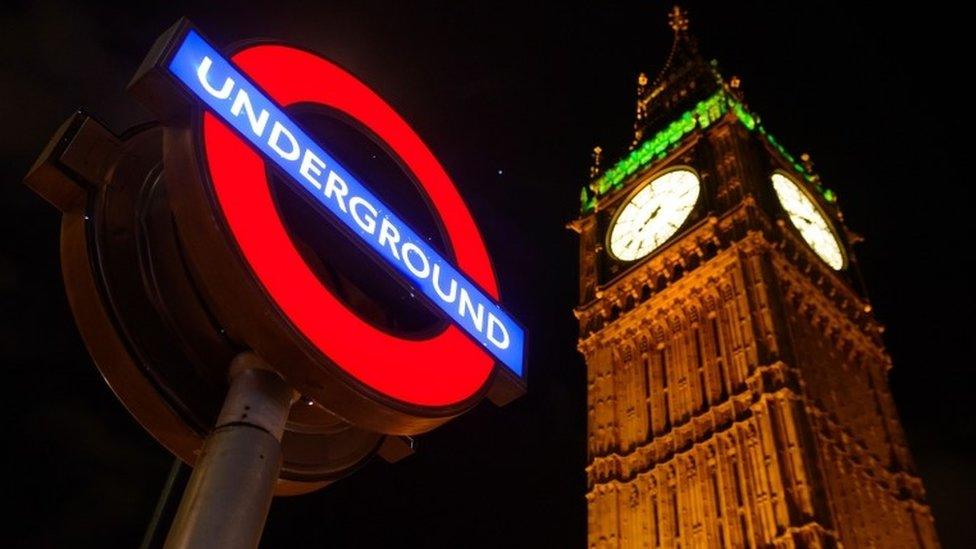
- Published23 May 2016
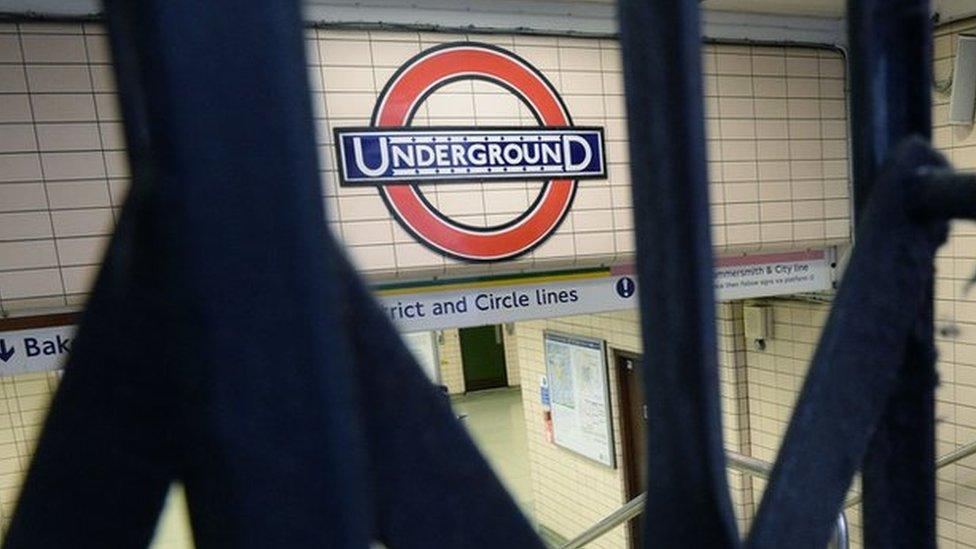
- Published23 May 2016
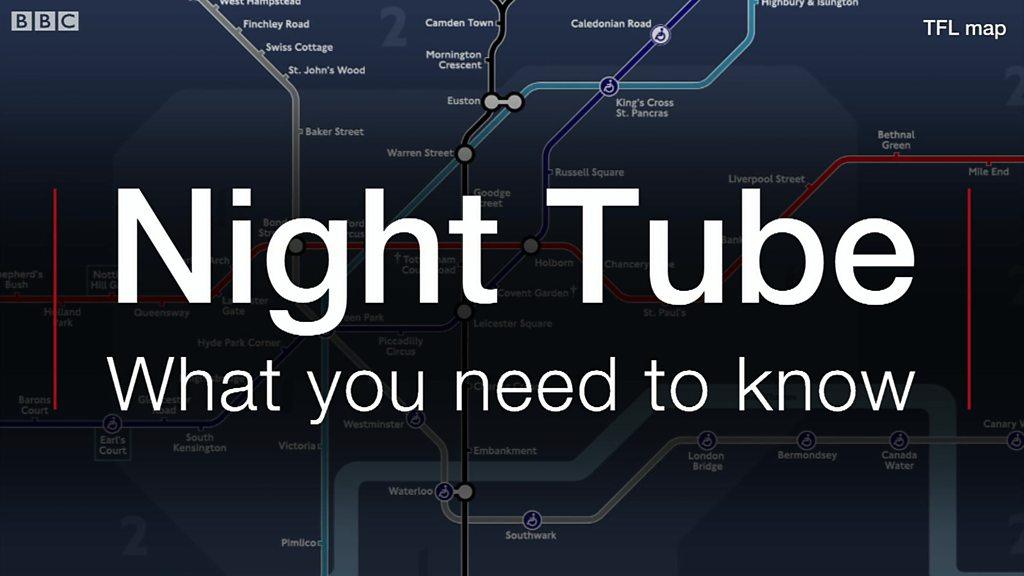
- Published9 November 2015
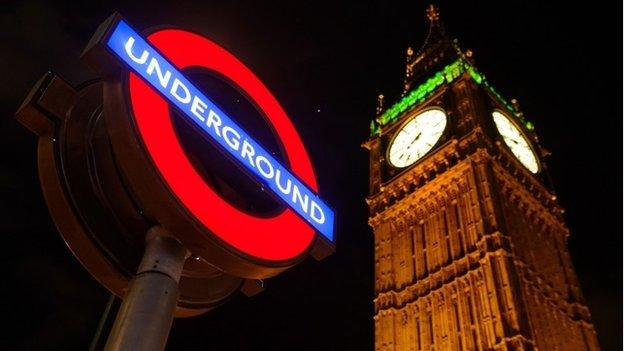
- Published12 August 2015

- Published12 August 2015
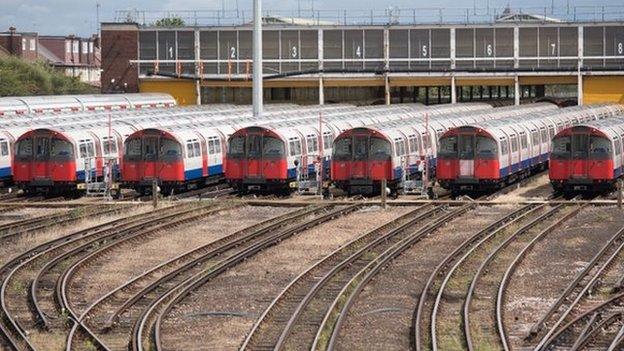
- Published11 August 2015
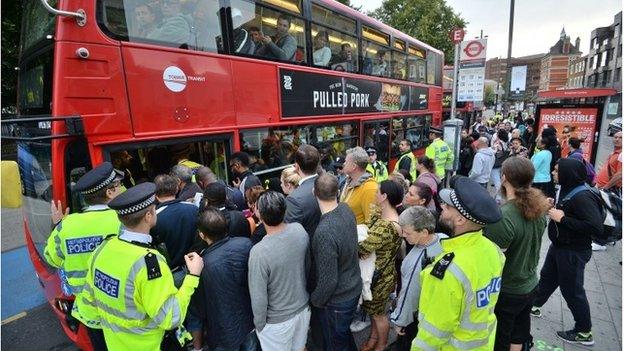
- Published4 August 2015
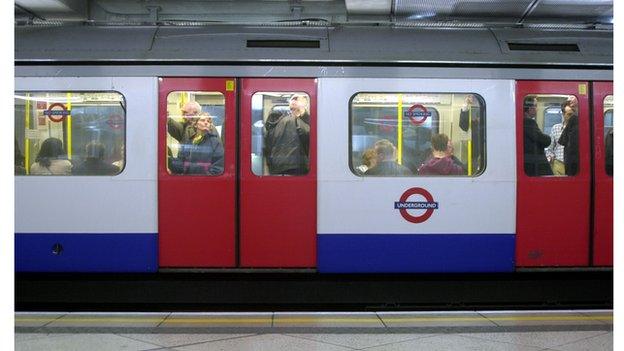
- Published24 September 2014
